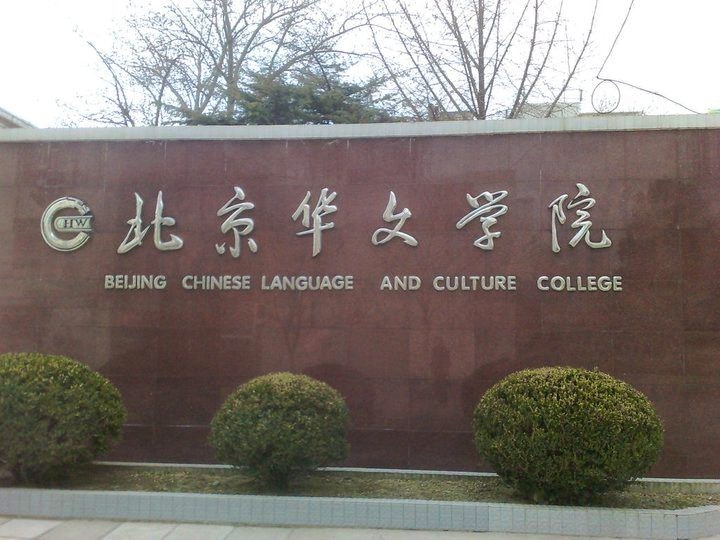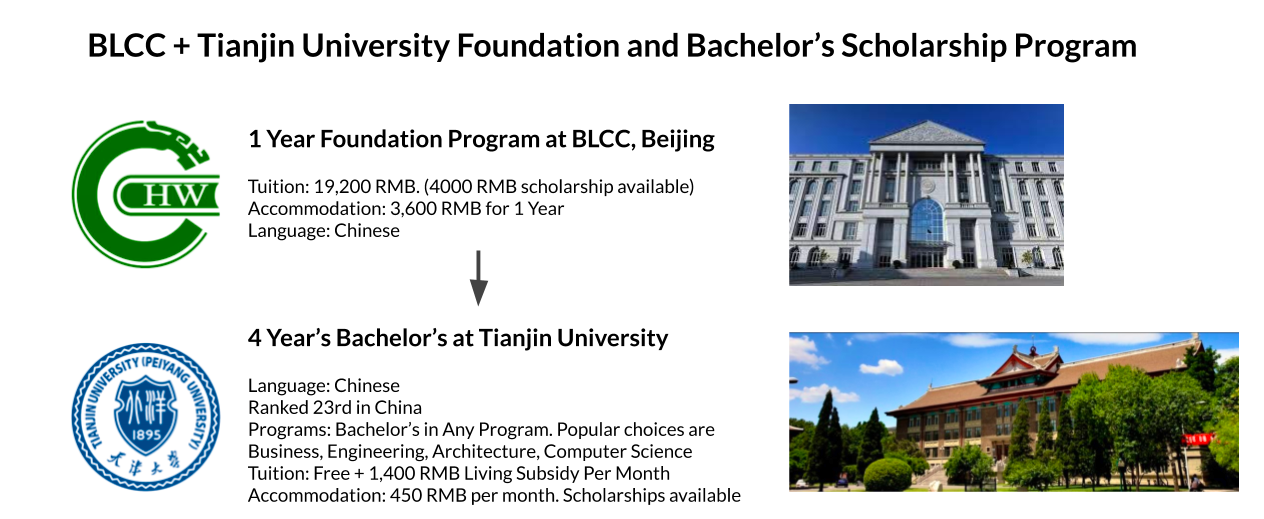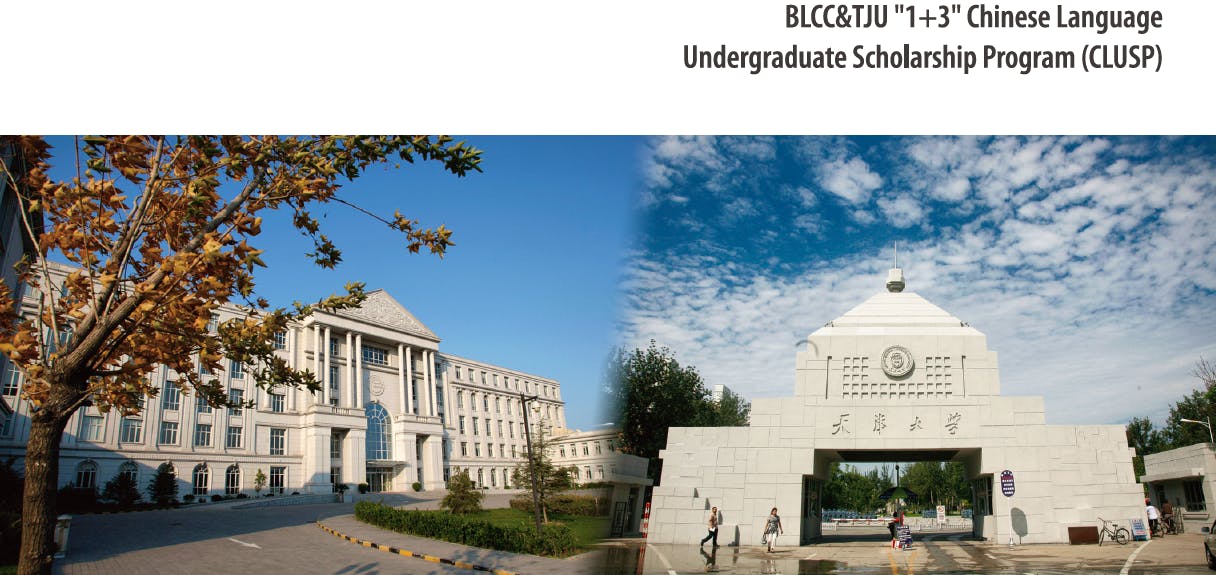Preparatory courses are designed to help you adjust to formal education in China as well as cope with the Chinese way of living.
Two of the most common preparatory programs students take are the Bachelor’s in Chinese BLCC + TJU Scholarship Program and the Chinese Campus Network International Foundation Program (CCN IFP).
What are these two programs’ advantages? Learn more about them here!
Advantages of the Bachelor’s in Chinese BLCC + TJU Scholarship and CCN IFP
To help you determine which program to take, China Admissions summed up the advantages of the two programs.
Bachelor’s in Chinese BLCC + TJU Scholarship

- After completing the program, students are awarded an undergraduate diploma and a bachelor’s degree certificate in the Chinese Language both issued by Tianjin University. They can also find professional employment after graduation.
- All students accepted into the program are provided with scholarships with the highest financial support at RMB 100,000 for four years.
- Experience quality education in two of China’s most outstanding higher education institutions and get support from two student communities and alumni associations.
- Students are offered five categories in curriculum planning: Chinese language (listening, speaking, reading and writing), Chinese culture, Chinese literature, Chinese history and Chinese philosophy among which Chinese language courses are the backbone.
- Beautiful and accessible campus with modern and state-of-the-art facilities.
- An affordable regular tuition fee of 19,200 RMB per year.
Study Chinese at BLCC in Beijing (3:01):
CCN International Foundation Program

- Students can choose from different IFP Programs offered by partner universities in the CCN consortium. Northwestern Polytechnical University, Shanghai University of Political Science and Law, Harbin Institute of Technology, Beijing Jiaotong University and Jiangsu University are just a few universities within CCN.
- The CCN IFP program provides different study routes according to a student’s educational background. Learn more about different routes here.
- Students can take the IFP at the location of their choice. There are many IFP Centres spread across China that students can choose from.
- CCN IFP provides a vibrant life for students through sports activities, events, and conferences, student associations, and excursions around China.
CCN – Study in China with Scholarship (1:49):
What Are These Two Programs All About?
The BLCC and TJU “1+3” Chinese Language Undergraduate Scholarship Program (CLUSP) is a four-year program for international students offered by both the Beijing Chinese Language and Culture College and Tianjin University.
It is for students who would like to pursue the Chinese Language as their undergraduate degree. Successful applicants will receive a scholarship for their first-year study at BLCC, after which, Tianjin University will offer a scholarship for the rest of the three years of the degree.
The International Foundation Program of China Campus Network (CCN) is a pre-university foundation course designed to prepare international students to study successfully at the undergraduate level in Chinese Universities.
Learn more about the programs here.

There are major considerations if you’re choosing from these two programs.
- Fees – the Bachelor’s in Chinese BLCC + TJU Scholarship is more affordable than CCN IFP
- Experience – the Bachelor’s in Chinese BLCC + TJU Scholarship is an older program, therefore, it has more experience
- Application – you can apply to the Bachelor’s in Chinese BLCC + TJU Scholarship online while in the CCN IFP you need a local agent in your home country. It’s also faster to get an admissions letter for the BLCC program.
Enrollment for the Bachelor’s in Chinese BLCC + TJU Scholarship program is now ongoing. Apply through China Admissions and we will provide you with professional advice and guidance.
- 5 Tips to Get a Scholarship in China this 2025 - July 16, 2024
- Study MBBS in China: Admissions Guide for 2024! - June 12, 2024
- 8 Universities in China with the Best Online Chinese Programs for 2024 - June 2, 2024
